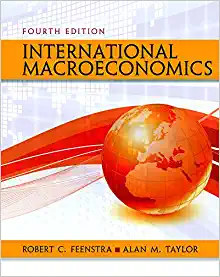Question
1.A consumer values a car at $30,000 and a producer values the same car at $20,000. If the transaction is completed at $24,000, what level
1.A consumer values a car at $30,000 and a producer values the same car at $20,000. If the transaction is completed at $24,000, what level of sales tax will result in unconsummated transaction?
a. 0%
b. 25%
c. 20%
d. 40%
2.A retailer X that is operating at a loss gets bought out by a larger chain of department stores, which shuts down the brand, using its assets for their own brand,
a.Wealth is destroyed since the company shut down
b.Wealth is created since the resources were of lesser value under the X brand and are now worth more
c.Wealth is neither created nor destroyed since the total amount of resources stay the same
d. None of the abo
3.A car dealership union negotiates a contract that dramatically increases all salesmen's salaries. If one of the salesman is thinking of changing careers to be a hardware salesman, his opportunity cost
a. would not be affected
b. of becoming a hardware salesman would decrease
c. of becoming a hardware salesman would increase
d. none of the above
4.A consumer values a house at $525,000 and a producer values the same house at $485,000. If the transaction is completed at $510,000, what amount of tax will result in unconsummated transaction?
a. A tax of $9,000
b. A tax of $14,000
c. A tax of $15,000
d.A tax of $18,000
5.A firm wishes to shut down an office and fire 100 employees. The company will save $3000 per month per employee. It is estimated that each employee contributes $4,100 to the company. The firm rents office space for this group of employees at $1500. What should the company do?
a. Fire the employees and save $1500 on rent
b. Not fire the employees keeping them generates a profit of $1100 per employee
c. Not fire the employees since keeping them generates a profit of $1085 per employee
d. None of the above
6.A creative entrepreneur is one who knows how to
a. Run a business
b. Escape the burden of taxes
c. Profitably exploit money making opportunities
d. All of the above
7.The hidden-cost fallacy occurs when
a. A firm considers irrelevant costs
b. A firm ignores relevant costs
c. A firm considers overhead or depreciation costs to make short-run decisions
d. Both a and c
8.If a firm is earning negative accounting profits, it implies
a. That the firm's economic profits are necessarily zero
b. That the firm's economic profits are necessarily positive
c. That the firm's economic profits are necessarily negative
d. Accounting profits alone cannot determine economic profits
9.A manager invests $400,000 in a technology that should reduce the overall costs of production. The company managed to reduce their cost per unit from $2 to $1.85. After the investment has been made, the $400,000 investment is
a. Considered sunk costs, not relevant in further decision making
b. Considered sunk costs, but still relevant in further decision making
c. Considered a loss
d. Considered a profit
Step by Step Solution
There are 3 Steps involved in it
Step: 1

Get Instant Access to Expert-Tailored Solutions
See step-by-step solutions with expert insights and AI powered tools for academic success
Step: 2

Step: 3

Ace Your Homework with AI
Get the answers you need in no time with our AI-driven, step-by-step assistance
Get Started


